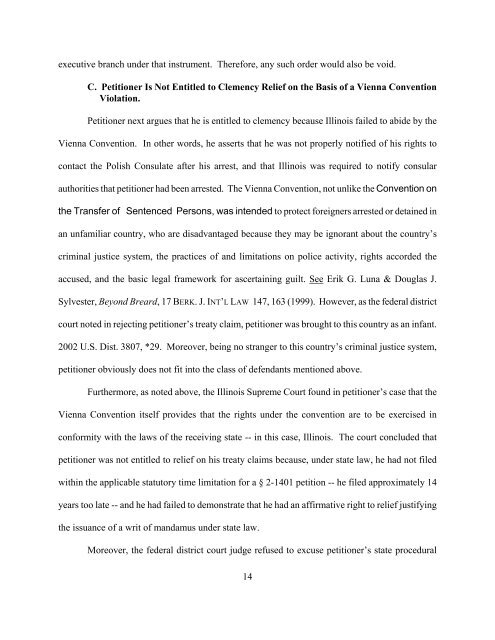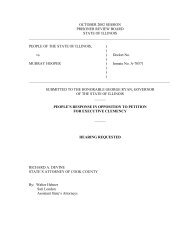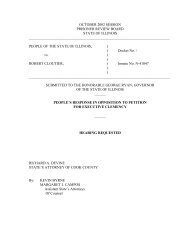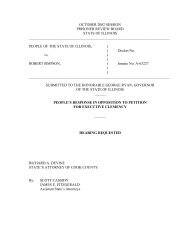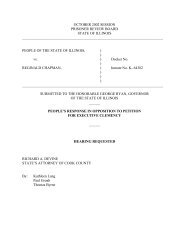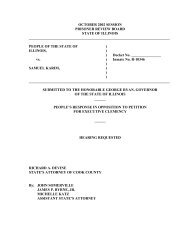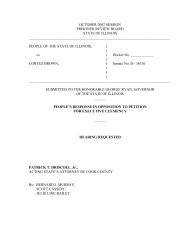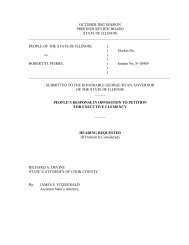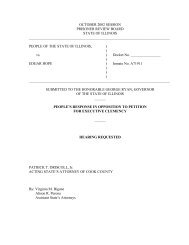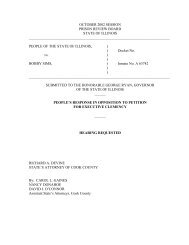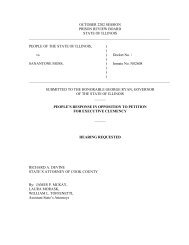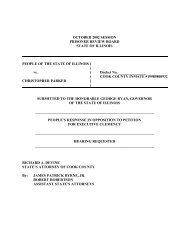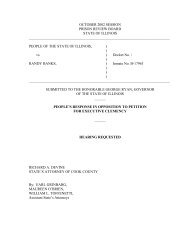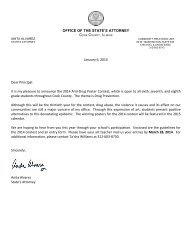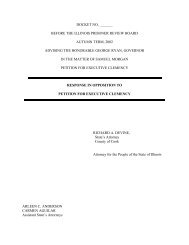Gregory Madej - Cook County State's Attorney
Gregory Madej - Cook County State's Attorney
Gregory Madej - Cook County State's Attorney
Create successful ePaper yourself
Turn your PDF publications into a flip-book with our unique Google optimized e-Paper software.
executive branch under that instrument. Therefore, any such order would also be void.<br />
C. Petitioner Is Not Entitled to Clemency Relief on the Basis of a Vienna Convention<br />
Violation.<br />
Petitioner next argues that he is entitled to clemency because Illinois failed to abide by the<br />
Vienna Convention. In other words, he asserts that he was not properly notified of his rights to<br />
contact the Polish Consulate after his arrest, and that Illinois was required to notify consular<br />
authorities that petitioner had been arrested. The Vienna Convention, not unlike the Convention on<br />
the Transfer of Sentenced Persons, was intended to protect foreigners arrested or detained in<br />
an unfamiliar country, who are disadvantaged because they may be ignorant about the country’s<br />
criminal justice system, the practices of and limitations on police activity, rights accorded the<br />
accused, and the basic legal framework for ascertaining guilt. See Erik G. Luna & Douglas J.<br />
Sylvester, Beyond Breard, 17 BERK. J. INT’L LAW 147, 163 (1999). However, as the federal district<br />
court noted in rejecting petitioner’s treaty claim, petitioner was brought to this country as an infant.<br />
2002 U.S. Dist. 3807, *29. Moreover, being no stranger to this country’s criminal justice system,<br />
petitioner obviously does not fit into the class of defendants mentioned above.<br />
Furthermore, as noted above, the Illinois Supreme Court found in petitioner’s case that the<br />
Vienna Convention itself provides that the rights under the convention are to be exercised in<br />
conformity with the laws of the receiving state -- in this case, Illinois. The court concluded that<br />
petitioner was not entitled to relief on his treaty claims because, under state law, he had not filed<br />
within the applicable statutory time limitation for a § 2-1401 petition -- he filed approximately 14<br />
years too late -- and he had failed to demonstrate that he had an affirmative right to relief justifying<br />
the issuance of a writ of mandamus under state law.<br />
Moreover, the federal district court judge refused to excuse petitioner’s state procedural<br />
14


